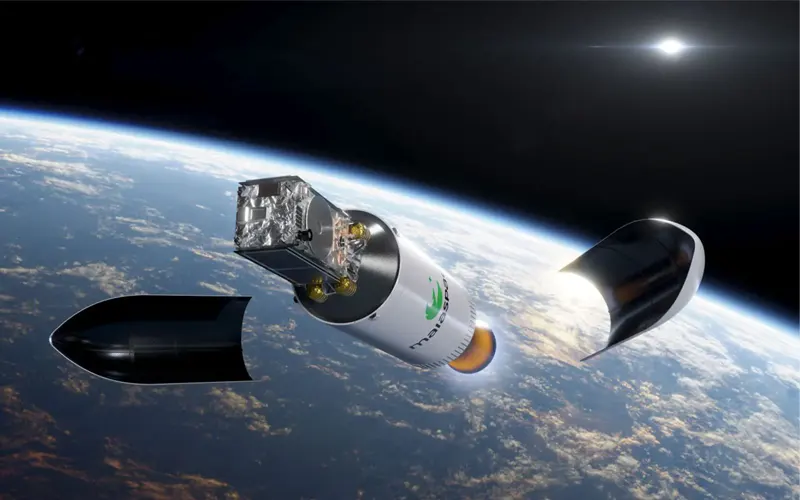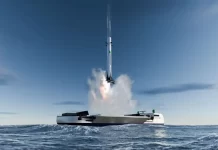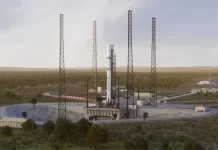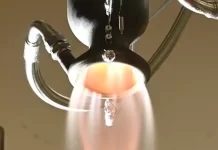
French launch startup MaiaSpace has selected the Łukasiewicz Research Network’s Institute of Aviation to develop the engine that will power its Colibri kick stage.
Founded in 2021 as a wholly owned subsidiary of ArianeGroup, MaiaSpace is developing a two-stage rocket called Maia. The rocket will be capable of delivering 500 kilograms to low Earth orbit when its first stage is recovered and 1,500 kilograms when it is expended. An optional kick stage can be added to increase the rocket’s payload performance. MaiaSpace expects to conduct its first Maia rocket launch in 2026 from the former Soyuz site at the Guiana Space Centre.
In a 23 April update, the Łukasiewicz Research Network’s Institute of Aviation (Łukasiewicz–ILOT) announced that it had been selected by MaiaSpace to develop a rocket engine to power Maia’s Colibri kick stage. According to the announcement, the engine will be based on technology developed by Łukasiewicz–ILOT as part of its Green Bipropellant Apogee Rocket Engine (GRACE) initiative, a project financed by the European Space Agency under the Future Launchers Preparatory Programme.
Each new engine will be capable of producing 420 newtons of thrust, with a cluster of these engines powering the Colibri kick stage. However, the update did not specify how many engines would make up the cluster.
Łukasiewicz–ILOT will be responsible for developing a flight-ready engine, including the execution of hot-fire tests. These will be carried out at the institute’s new Rocket and Satellite Propulsion Laboratory Center in Warsaw, inaugurated in October 2023. Thaliana Space, a partner in the agreement, will assist with the production and delivery of the propulsion systems.
Thaliana is a spin-off of Łukasiewicz–ILOT, founded in 2022. In March 2025, the institute signed two licensing agreements with the company, allowing Thaliana to produce and commercialize rocket engines developed by Łukasiewicz–ILOT. At the time, Łukasiewicz–ILOT announced that the first contracts signed under these agreements had already exceeded PLN 1 million (€234,000).
A Tale of Two Kick-Stage Engines
In late 2023, MaiaSpace announced on LinkedIn that it had reached an “exciting milestone” with the completion of an “experimental firing test campaign” for its Colibri kick stage. While the update offered few details, it appeared to involve testing of an early prototype of the kick stage’s main engine. This raises the question: what happened to that engine, and why has the company now decided to outsource its development?
In response to a question from European Spaceflight, a MaiaSpace spokesperson explained that the company “never intended” to design the engine themselves. “Since the very beginning, we’ve been performing several firing tests as part of a tradeoff for the kick-stage engine.”





Begs another question: why an engine needs to be developed at all. There are off-the-shelf engines that would serve e.g. from Nammo.